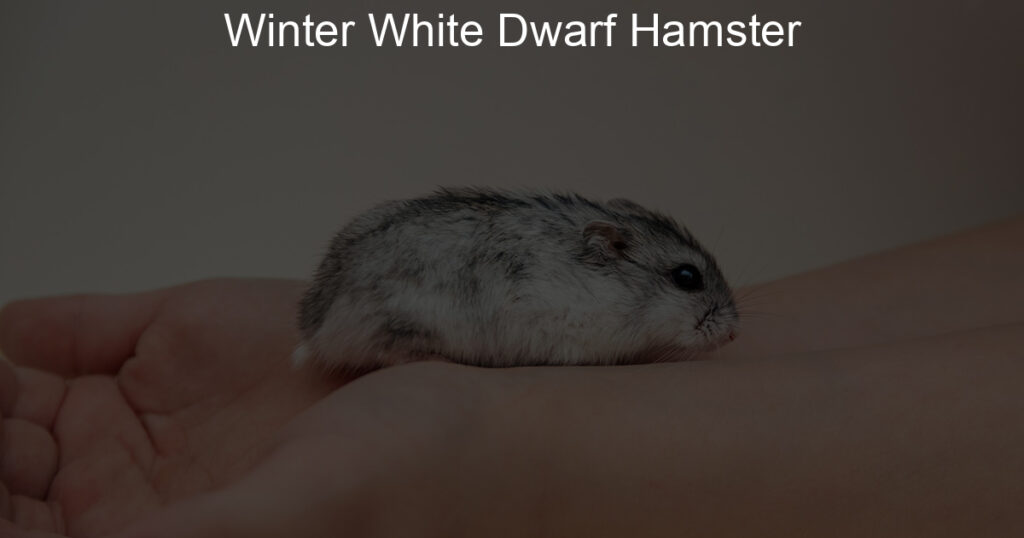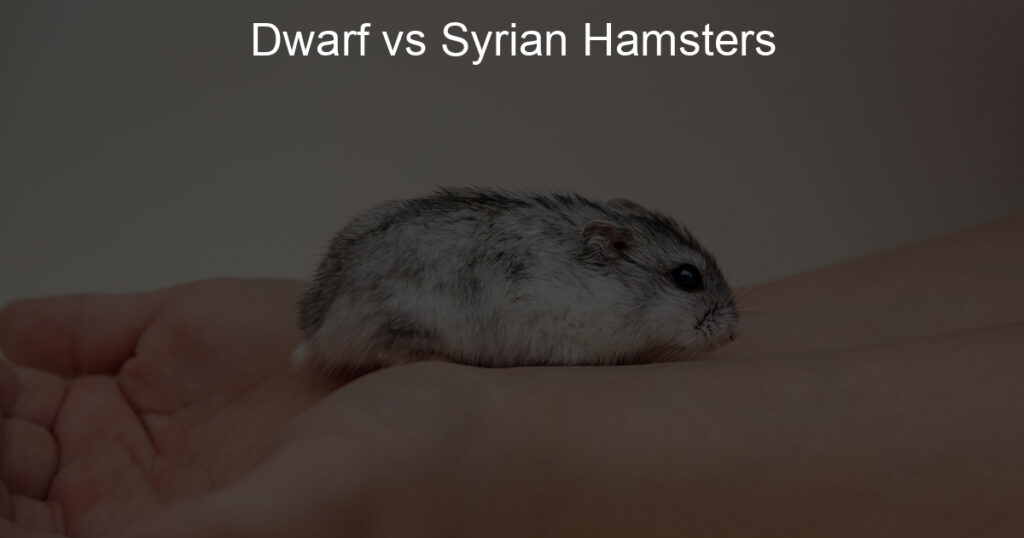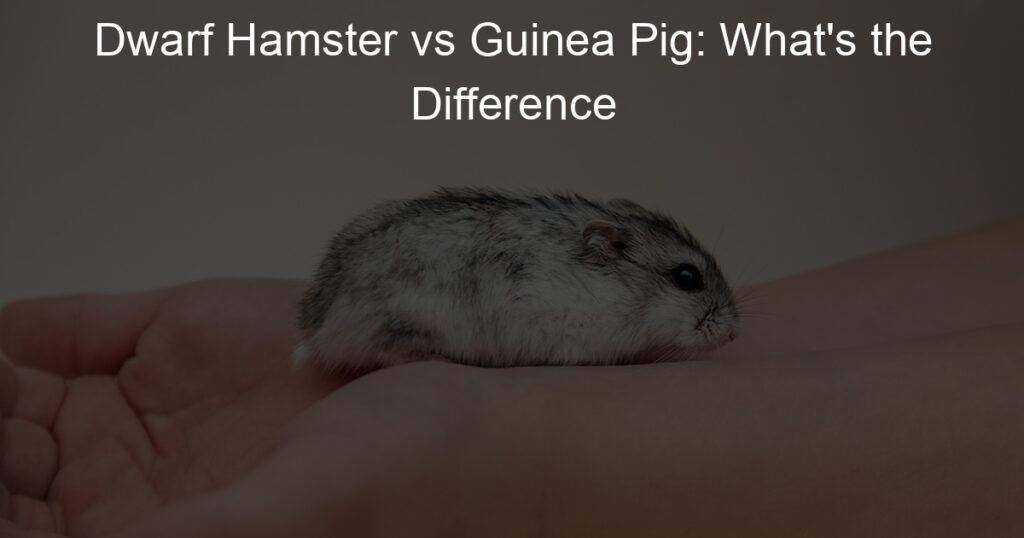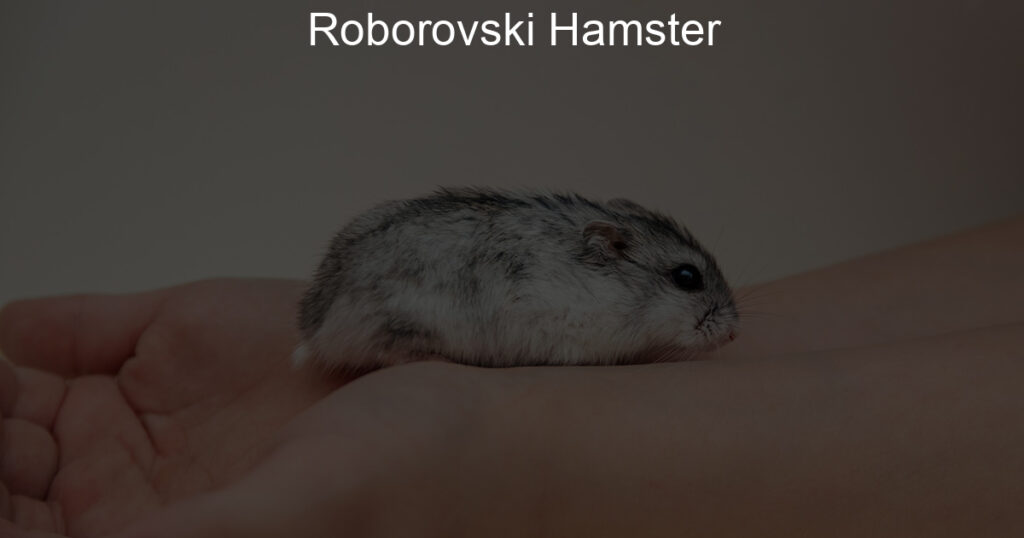If you’re considering adding a furry little friend to your home, then you may be thinking about buying a dwarf hamster. These adorably small pets are popular for many reasons, but there are some things you should know before making the commitment. Here’s what you need to know about dwarf hamsters!
What to know before buying a dwarf hamster?
If you are considering getting a dwarf hamster for your home, there are some important things to consider before taking the plunge. First, take into account the amount of space and resources available for keeping a hamster healthy and active – you’ll need to provide your pet with enough space, adequate food, nesting materials, and plenty of toys and activities.
Second, make sure you have plenty of time on your hands – these small animals require dedication and patience in order to ensure their well-being. Thirdly, be sure to do some research so that you know how to pick up, handle, and clean cages properly and recognize signs of illness.
Finally, it’s always a good idea to consult with a veterinarian before making any major commitments. With the proper knowledge and commitment on your part, you can ensure that a dwarf hamster can bring years of joy into your home.
Are dwarf hamsters good for beginners?
Dwarf hamsters make great pets for new owners. With their small size and sweet demeanor, these small animals can fit into any home and provide plenty of affection. Dwarf hamsters don’t require a large enclosure like many other rodents, and with proper care, they can live for two to three years.
They are active during the day, making them ideal for those who want to be able to play with their pet. Unlike some other hamster breeds, dwarf hamsters generally get along well in pairs or groups, making social interaction easy. With an appropriate diet, plenty of toys, and regular exercise there will never be a dull moment with a dwarf hamster as your companion!
Are dwarf hamsters OK alone?
Dwarf hamsters are popular pets because they are small, cute, and affectionate with their owners. However, when it comes to whether they can live alone without companionship, the answer is mixed. Dwarf hamsters typically benefit from being paired with another of their own species – however, such pairing must be done carefully as placing two strangers together could result in aggression and fighting.
That said, some dwarf hamsters can thrive on their own if they are provided with an adequate diet, plenty of enrichment activities like tunnels and toys, and regular interaction with their human carers. Ultimately, pet owners must assess the individual character of their hamster before deciding if solitary living suits them or not.
Do dwarf hamsters need baths?
Dwarf hamsters actually do not need baths like other animals. Despite their small size, these little creatures are incredibly self-sufficient when it comes to grooming. Dwarf hamsters spend most of the day licking themselves clean and they often use their bedding material to aid in their cleaning.
It’s usually unnecessary to give your dwarf hamster an actual bath and doing so can actually be detrimental to the animal’s health and stress levels due to the experience being so unfamiliar.
Do dwarf hamsters bite you?
When it comes to dwarf hamsters, it depends on the individual and their personality whether they will bite you or not. Some may be more susceptible to biting than others, depending on how you approach them and interact with them.
If a dwarf hamster is shy or scared of your presence, it might become territorial and attempt to bite as a form of defense. It’s important to give these small animals time to get used to you and trust you before attempting any interaction.
Also, make sure that you keep your hands clean when handling a dwarf hamster, as dirty hands can cause discomfort and prompt them to try to bite. With proper care and attention alongside a calm demeanor, your relationship with a dwarf hamster can be one of fun and enjoyment!
What should dwarf hamsters not do?
Dwarf hamsters have quickly become one of the most popular pets around, but there are certain things they should never do. Despite their small size and peaceful nature, these adorable little animals require a lot of attention in order to stay happy and healthy. Unfortunately, dwarf hamsters are particularly prone to developing diabetes if they consume too much sugar, so they should not be fed candy or other sugary treats.
Additionally, it is important that dwarf hamsters have a clean environment where they can enjoy running on their exercise wheels. They need plenty of ventilation, as well as bedding to help combat the risk of skin problems associated with a lack of humidity. Lastly, it is highly recommended that dwarf hamsters have at least one companion in order to satisfy their social needs and prevent stressful behavior like spinning or squeaking when alone.
It’s A Wrap
Before you buy a dwarf hamster, it’s important to know what to expect in terms of care and personality. Dwarf hamsters are great for beginners because they are small and relatively low-maintenance. However, they should not be kept alone and do need regular baths. Additionally, while dwarf hamsters generally don’t bite humans, they can nip if agitated or frightened. If you’re considering a dwarf hamster as your next pet, make sure you’re prepared to give them the care they need!








